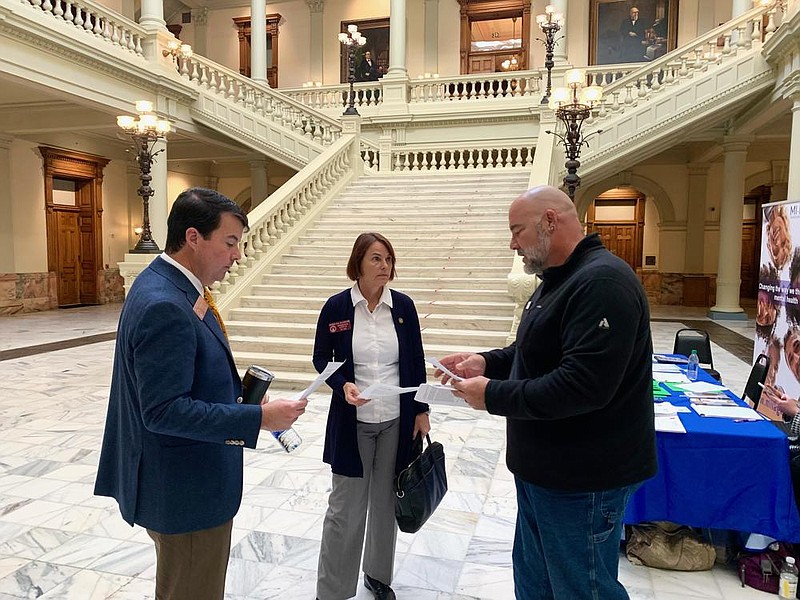Recovery organizations in Georgia are seeking state funds to make Narcan kits available to emergency medical services teams.
Reboot Jackson is one of 38 recovery community organizations throughout Georgia, the largest of which is the Georgia Council on Substance Abuse. The Jackson group's president, Jonathan Langston, traveled from Jackson County, a rural county with a population of just more than 60,000 people, to Atlanta to meet with lawmakers at the state Capitol shortly before the Thanksgiving holiday.
Rural communities are in a particularly vulnerable position when it comes to first responder funding for naloxone, a nasal spray administered with a Narcan device to save a person dying during an overdose. There is a higher overdose rate per capita in rural communities across Georgia than that of urban areas, according to the Georgia Opioid Overdose Annual Surveillance Report from 2020. Counties such as Bibb, Houston, Coffee, Crisp and Dawson have experienced more than 60 overdose-related emergency department visits per 100,000 people whereas counties such as Fulton and DeKalb have had fewer than 50 per 100,000 people.
The goal is to find support for a $2 million fund to distribute Narcan kits to first responders statewide and open distribution rights to recovery organizations.
When House Bill 965 passed in 2014, recovery organizations could distribute Narcan to peers but not to the firefighters and paramedics worried their allotted amount of Narcan is not enough to keep up with the overdose calls they receive. Depending on which station they are based out of, they may go through their month's supply in a matter of days, according to Reboot Jackson.
However, the Department of Behavioral Health and Developmental Disabilities did provide funding for first responders to receive Narcan through the Georgia First Responders Training Center. Those state funds assist both substance users and first responders, but there is still room for improvement.
While the state trained 3,611 first responders in 140 counties across Georgia over the past three years, 3,222 Narcan kits were distributed. That compares to 7,000 Georgians who ended up in emergency rooms after overdosing last year.
Langston said his group has bipartisan support for saving lives and encouraging recovery from substance use disorder.
"I feel like we have some very good backing," Langston said. "We've been working with several different people on the working group for recovery and addiction."
While local governments can and do purchase Narcan for their first responders to carry, the discounted price for a two-dose box is $75, Langston said, which greatly affects a community's budget.
The cost of the opioid crisis has already taken a great toll on the budgets of many communities because of the collateral effects of drug overdoses including the need for autopsies, toxicology screenings, emergency services, unpaid hospital bills, Division of Family and Children Services involvement and so on, which Langston said leaves community leaders weighing the decision on whether to spend money on life-saving medicine.
But Langston said a firefighter with the North Jackson Fire Department told him the need for a tool like Narcan is great - and not just for substance abusers.
"He said, 'I go to a call where a child may have taken a grandparent's pill that they found on the floor. And I get to the call and I don't have any Narcan, and now I've got a 5- or 6-year-old child that's overdosing on a narcotic that I can't do anything about."
